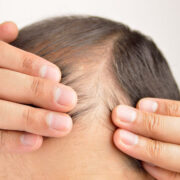“The symptoms of a panic attack are typical,” explains Jerónimo Sáiz, head of the Psychiatry Service at the Ramón y Cajal University Hospital in Madrid. “They are very violent, sudden, intense and fast and cause a lot of discomforts”.The expert indicates that in a short time, patients will have palpitations, a sensation of tachycardia, shortness of breath, chest tightness and sweating. They may notice nausea or stomach pain and feel light-headed. However, although patients usually describe this feeling of dizziness, in reality, Sáiz specifies that more than dizziness, it is fear of getting dizzy. Other symptoms that may appear are a feeling of instability or lightheadedness, fear of losing consciousness, tingling and numbness. On the other hand, in addition to the physical symptoms, some psychic symptoms may also appear, such as the feeling that things are not really around oneself or that it has an aspect it does not recognise. Finally, there is the fear of losing control or going crazy.
These crises of anguish and anxiety are not new, nor has their incidence increased with the crisis. Although all factors indeed have to do with being under continuous stress, losing your job or home can increase the risk of having an anxiety attack. However, aside from these factors, others complicate panic attacks; as Saiz points out when patients suffer from them, they perceive that they have a physical problem instead of an emotional one. “They believe they suffer from a serious illness, such as a myocardial infarction. which endangers his life.” To this, it is also added that in most cases, people develop the so-called avoidance symptoms, which are none other than phobic symptoms for which they begin to have an irrational and exaggerated fear. “This fear is related to the belief that if we have an attack when we are alone, we will not receive help. That’s where agoraphobia comes from, and another series of limitations that can affect people is invalidating and important.
Tips for coping with anxiety
We feel anxiety at some point in life. Family problems, economic difficulties and new situations usually generate what the Royal Spanish Academy defines as a “state of agitation, restlessness or anxiety of mind “.
To combat this adaptive anxiety, the psychologist proposes the following lifestyle guidelines:
- Relaxation exercises (breathing, yoga) and mindfulness “go very well for anxiety”.
- Take care of the food.
- Sleep well.
- Knowing how to set limits translates, among other things, into “not exceeding in the workplace and not taking work home”.
- Know how to ask for help since “we tend to burden ourselves with too many tasks”.
When to go to a professional
The experts emphasise the importance of distinguishing anxiety as a symptom of the disorder, which is “a differential pathology, more structured and with clear diagnostic criteria”.
Normal or physiological anxiety differs from pathological anxiety in the following aspects:
Physiological anxiety
It is a defence mechanism against threats to daily life. It is due to environmental circumstances.
Pathological anxiety
Anxiety can manifest in the form of panic attacks. Crises occur suddenly with tachycardia, sweating, shortness of breath, headache, and dizziness.
It is a disease that interferes significantly in the daily life of those suffering from it. “70% of patients, aware of the risk of experiencing crises, may tend to avoid situations such as taking the car or the subway,” says the psychiatrist.
In addition, it is a pathology with a high tendency to chronicity and recurrence, which requires psychological and pharmacological therapy. “In many cases, treatment is required in specific units, but there are very few,” warns Seguí, who also regrets that many people think “that they are banal pathologies when they are not.”
The administration of specific drugs and cognitive-behavioural psychological therapy makes it possible to successfully treat many cases, as long as the action is taken in time. In addition, it must be taken into account that, in many cases, they are associated with other disorders, such as depression, obsessive-compulsive disorder (OCD), and alcohol abuse.
Generalised anxiety disorder
In these cases, panic attacks do not occur. For example, those affected may suffer “anxiety attacks from time to time” but manifest less dramatically. These patients also clearly benefit from pharmacological and psychological treatment.












Comments